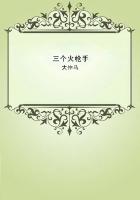Originally, testamentary disposition was completely unknown: primitive nations did not understand how the mere wish of anindividual, taking effect after his death, could decide the ownership of property, the transmission of which, in the patriarchalgroup, was regulated by the sacred authority of custom. Even later, when wills were introduced, the testator could onlydispose of that which he had acquired, not of that which had come to him by descent. He was absolute master of all that hisown industry and economy had created; but the land which he took as his patrimony was the hereditary product of theaccumulated labours of the family, which he was bound to transmit just as he had received it. (3) So early as the Assize ofJerusalem, remarks Gans, (4) we see a distinction between those things which can be freely disposed of by will, and thosewhich are not subject to the caprice of the testator, but become by force of law the property of his direct heirs. Propertyacquired by the testator can be transmitted just as he thinks good. The same distinction appears both in the old and newcustomary law of France between the héritage and the acquêts ainsi que les meubtes ; (5) for the first kind of property theamount that may be disposed of never exceeds one-fifth; for the others it includes the whole. This limitation imposed on theright of testators, which was subsequently adopted to some extent by the Code Napoléon, is the expression of an ideaessentially sound and equitable. It is the German principle of which Tacitus tells us; respect being paid alike to the *******of individual intent and to the rigid and immutable rights of the family. Over all that he has acquired the testator has freepower of disposition; but his power is checked the moment he attempts to touch the land of his inheritance, the familyproperty which he has administered rather as a mandatory than as absolute owner. The sound reason for these provisions,which are found universally at a certain period, is that civil society is based on family groups regarded as perpetualcorporations, whose preservation it is bound to secure. The same motive led to the exclusion of women from succession toland. It was necessary to prevent its passing by their marriage into the hands of a strange family. As we have seen in India, inprimitive Greece and among the Germans, as also at the present day among the family communities of the southern Slavs,females cannot inherit. They have only a right to a share in the moveables, to a dowry.
Just as, under the system of village communities, no one could dispose of his private property, his house and enclosure,without the consent of the other inhabitants of the mark; so in later times he could not alienate land, except with the consentof the other members of the family. In default of such formality, the alienation was void, and the land could be claimed back.
The retrait-lignager , which was maintained in Germany till the sixteenth century, and in Hungary almost till our own time,was based on the ancient principle which attributed the eminent domain to the family. If the members of the family couldenforce the re-transfer of the land to themselves on re-paying the price, it was obviously because they had a superior rightover it which had been disregarded.
Trusts and entails, which make the possessor a mere usufructuary, are the aristocratic form of the family community. Theproperty still forms the inalienable and indivisible domain of the family, but the eldest alone enjoys it, and no longer all thedescendants in common. We will first consider the family communities among the southern Slavs; and will then endeavour toconstruct them as they existed in the middle ages.
1. Plato in his day retained the early notions on this point. "In my capacity of lawgiver," he says, "I tell you that I regardneither you nor your goods as belonging to yourselves, but as belonging to your whole family, and your whole family withall its goods as belonging to the state." Plato, De Leg . I. v.
2. La Cité Antique , cap. X.
3. It is exactly the same in the Irish sept (Corus Becsna, Ancient Laws of Ireland , III. 5), and in the joint-family of ModernIndia. See Sir H. Maine Early History of Institutions , p. 111.
4. Hist. da droit de succession en France au moyen-âge , par Edouard Gans. Traduct. de Loménie, 1846, p. 204.
5. We find the same provision in an ancient English statute of Henry I. "Adquisitiones suas det cui magis velit; si boclandautem habeat, quam ei parentes sui dederint, non mittat earn extra cognationern suam."CHAPTER XIV.
FAMILY COMMUNITIES AMONG THE SOUTHERN SLAVS.















